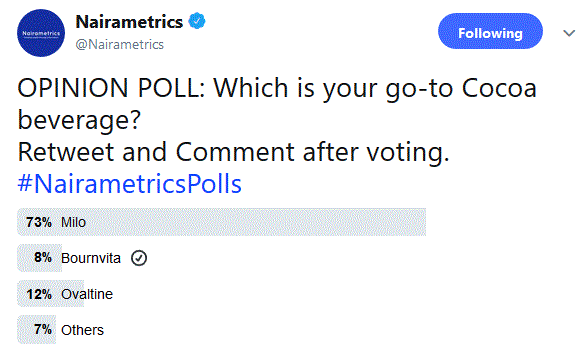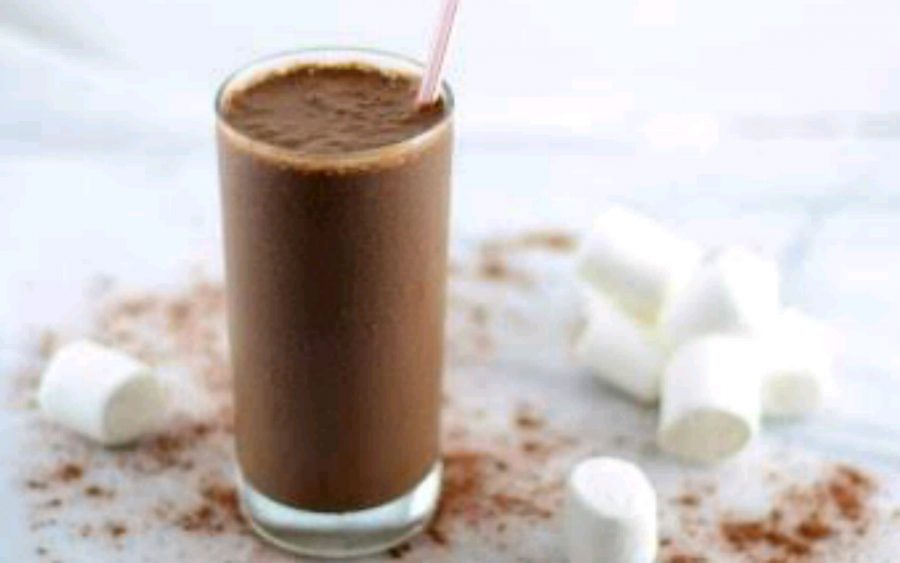Cocoa is one of the major cash crops grown in Nigeria and most Nigerians born in the 70s and 80s would appreciate the value of this and other cash crops to the economy.
According to statistics, Nigeria is the fourth largest global producer of cocoa, just behind Ivory Coast, Indonesia, and Ghana. It is also the third largest exported agricultural product, with just a few figures behind sesame seeds and cashew nuts. It is widely grown in the south-west and south-south regions of the country.
Apart from its immense health benefits, cocoa has other benefits along its value chain. The cocoa bean seed is used to produce cocoa butter, and in turn converted into chocolate which when grounded, is regarded as the cocoa beverage.
Sadly, despite the huge availability of cocoa in Nigeria, major players in the cocoa beverage market are largely foreign companies, while local producers continue to play on the fringes.
On this week’s edition of Product Review, a weekly article where we feature products contending for prominence in the highly competitive consumer market, we bring to you, the various chocolate beverage brands in the Nigerian market and how they are competing for leadership and profitability.
Major brands in the Nigerian market
The Nigerian market has become a beehive of activity for makers of cocoa drinks around the world. This is partly due to an increase of the young population in the country. Though the recent economic contraction has reduced the purchasing power of many consumers, the volume of sales is gradually heading north again with recession gradually easing.
The major players in Nigeria’s cocoa beverage market include Bournvita from the production line of Cadbury Nigeria Plc, Milo, manufactured by Nestle Nigeria Plc, Ovaltine, produced by Twining Nigeria, Horlicks, produced by GlaxoSmithKline Consumer Plc, Oluji Pure Cocoa Powder, a local competitor in the market and Cowbell Choco, manufactured by Promasidor Nigeria Limited.
Entrance of a local brand
Competition became heightened in the market with the entrance of the locally produced chocolate beverage brand, Oluji Pure Cocoa Powder, named after a cocoa farming community in Ondo state. The cocoa beans produced in this community are adjudged to be of very high quality and they are sought-after internationally.

Another local brand in the market is the Le Signature Drinking Chocolate which is also made from pure cocoa. The product which made entrant into the market is set to compete with other coca drink in the market.

SWOT Analysis of the market
Strength
Considering the huge population and its growing urban population, Nigeria is a prime market for chocolate beverages. Nigeria is also a major player in the production of cocoa globally, hence easy access to raw materials.
Weakness
Manufacturers are exposed to fluctuations in foreign exchange, as most players depend largely on imports for their raw materials.
Opportunity
Manufacturers can adopt a backward integration by investing in research and development to enhance the cocoa breeds available in the country. The Cocoa Research Institute of Nigeria must double down and live up to its statutory responsibility.
Threat
Competition has narrowed the price gaps among brands; also, a high influx of unnamed cocoa drink brands pose a great threat to the market. Regulatory agencies must ensure that only duly registered brands find their way into the market.
A three-horse race in the market square
Recent happenings in the market have reduced the contenders to four, namely Milo, Bournvita, Ovaltine and Oluji Pure Cocoa Powder, of which the initial three are positioned as leading market brands, thereby creating a three-horse race.
Recently, Bournvita, which has remained a strong household name for years, appears to have allowed complacency weaken its leadership in the Nigerian market. Interestingly, Bournvita and Milo have been at ‘war’, in the quest to be crowned ‘King’ in the market for years.
Makers of Milo and Bournvita have adopted direct marketing tactics to reach their target market, while also churning out new packaging jars and smaller sachet packs to drive patronage among middle and low-income earners in the country.
The Ovaltine brand continues to remain relevant in the market space despite the threat from the other two main players. The brand is more expensive, compared to the other two brands which is probably why it does not compete favourably.
It is interesting that both Cadbury’s and Nestlé have removed the term Chocolate from there product packaging due to the fact that the actual cocoa content is very small.
The term Chocolate was removed due to European Union product description regulations. Therefore, the Milo and Bournvita we all grew up on has changed significantly in order to maintain profitability of these products. Ovaltine hasn’t changed it’s content and still remains the Malt drink we love to drink hot or cold.
What consumers are saying
Nairametrics’ findings in major markets revealed that majority of consumers prefer Milo, Bournvita, and Ovaltine, in that order.
Findings also revealed that the preference for Milo is as a result of its smoothness, rich taste and dissolvability in hot and cold water, as well as its social value (the brand is a major sponsor of basketball competitions in the country). What has also endeared consumers to Milo is the Choco Milo cube, which is chewed or licked by both children and adults.
A wholesaler, Mrs. Nkeize, located at Ogba, a suburb of Lagos, said:
“Due to different taste buds and choice of consumers, Milo is the most demanded over Ovaltine and Bournvita.
At Ipodo market, Ikeja, a wholesaler, Iya Bolu, said:
“Milo is the most demanded and preferred due to its high quality. My customers prefer Milo due to its sweet taste and texture, I felt the texture myself and noticed that it is smooth.”
Bournvita still has a huge share of the market, as many consumers like its taste.
For many consumers, Ovaltine does not come to mind when it comes to brand choice. According to some consumers, what has helped Ovaltine in the market is its smoothness, malt taste, great smell, as well as dissolvability both in cold and hot water.
Going by most of the retailers who spoke to Nairametrics, the sales of beverages depends on consumers’ choices — some prefer Milo while most of the others go for Bournvita. However, the consensus is that Milo sells most.
Verdict
In a poll conducted by Nairametrics, Milo got 73% of the vote, Bournvita got 9%, while Ovaltine and other brands got 12% and 6% respectively.

Apparently, the opinions of the consumers (as witnessed in the poll) and the retail sellers are at variance when it comes to which brand comes second in the cocoa beverage market but there is no doubt that Milo comes first.
Manufacturers looking for a huge sale and prominence in the Nigerian market must continue to improve on their products while regulatory agencies such as NAFDAC and SON must ensure that only duly registered products find their way into the market.











